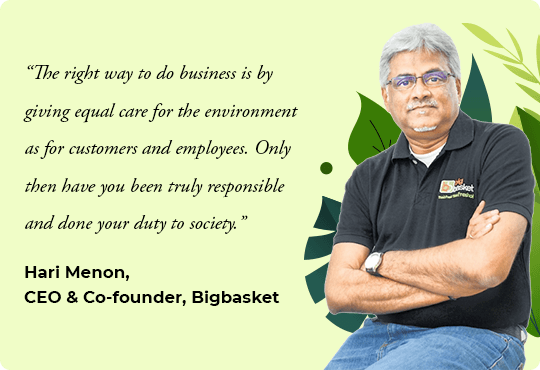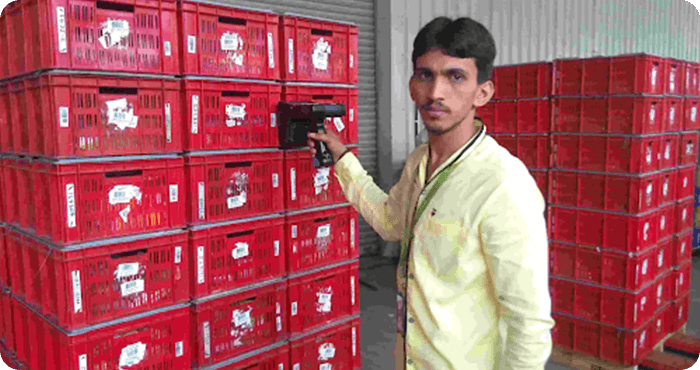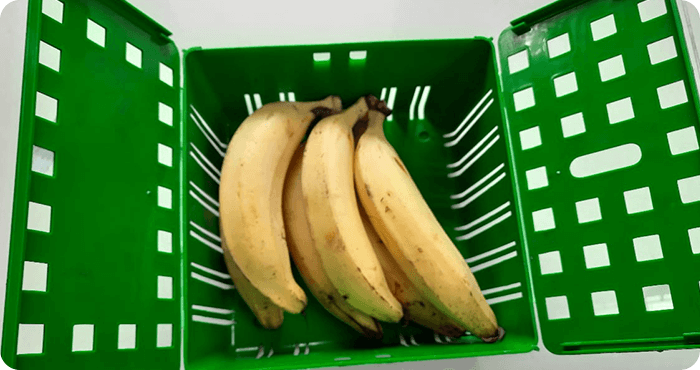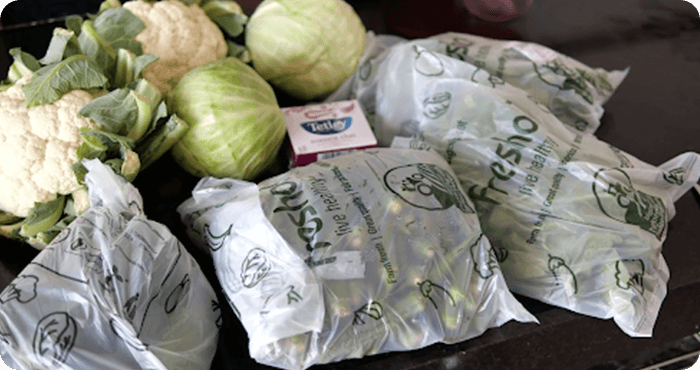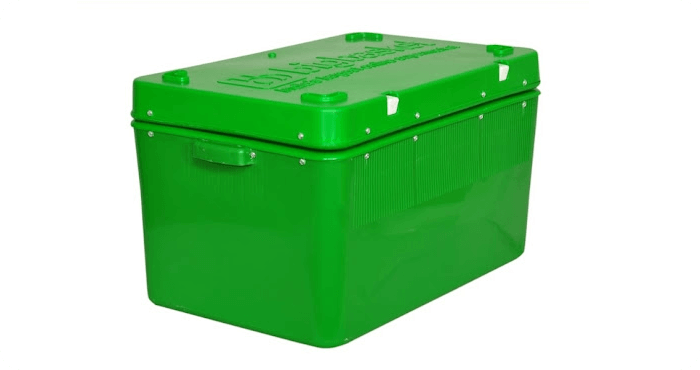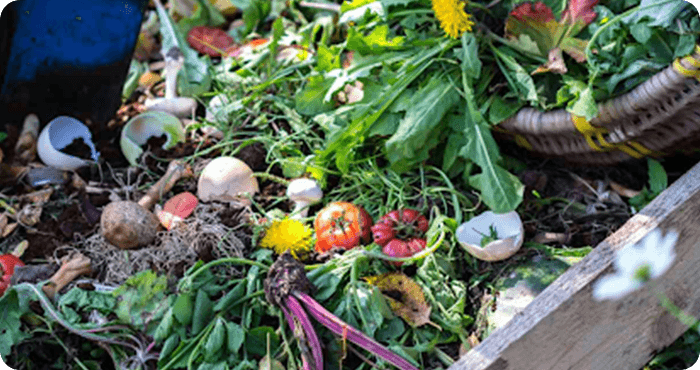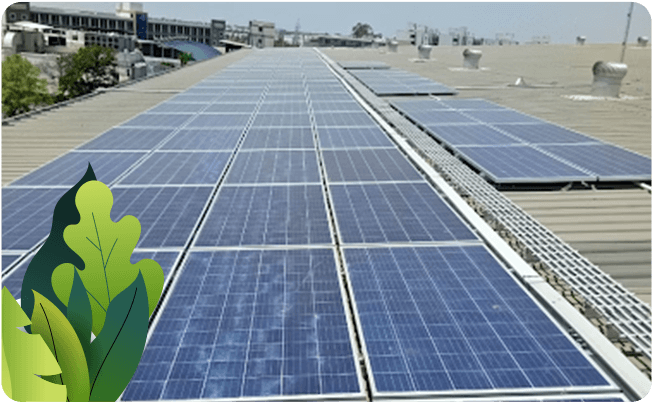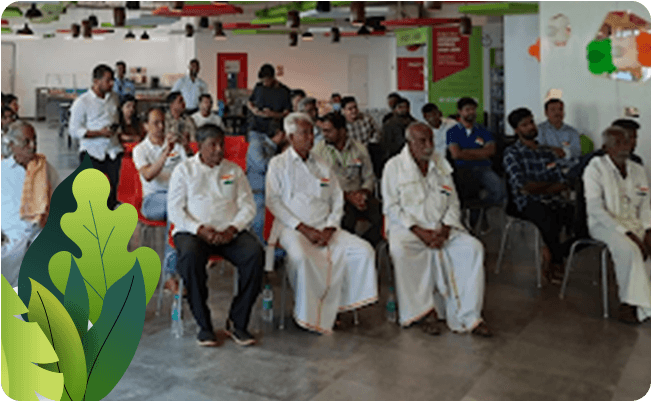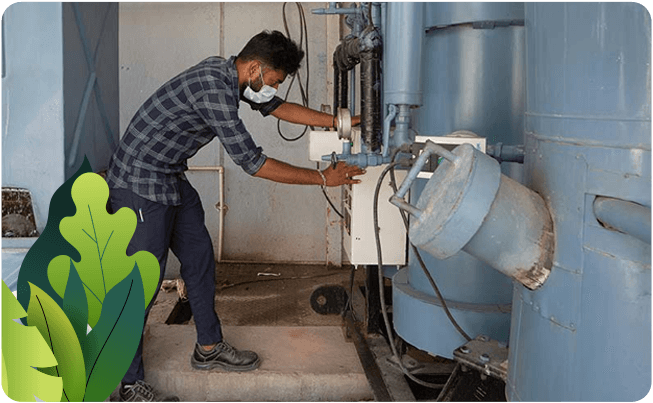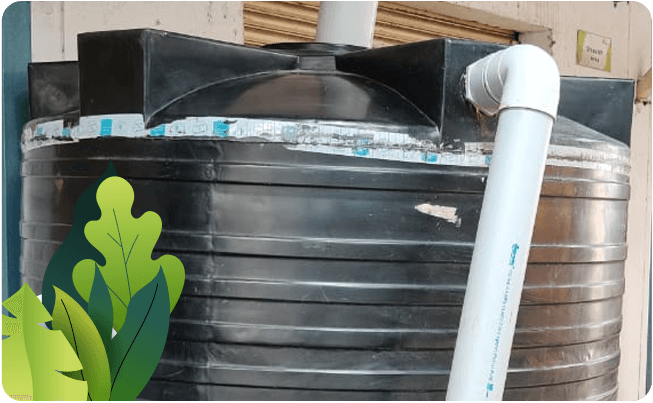|
| Wet & Dry Waste Management |
|
|
Reduce. Reuse. Recycle. This simple, powerful framework has driven all our waste management efforts. |
 | | Reduce |
|
|
| |
• Specially designed metal crates used to transport items damage-free at our warehouses. This reduces the use of packaging materials like corrugated cardboard that are otherwise needed to protect products during transit. |
• Reusable hard plastic crates used to pack, transport, and deliver orders. These are sturdy, long-lasting, and highly recyclable (can be crushed, turned into pellets, and used to make new plastic.) Once they reach end-of-life, we recycle responsibly, ensuring they don’t end up in landfills. | |
• Unsold stock of grains, fruits, and veggies in good condition donated to local charity kitchens. This helps us reduce food wastage, a major problem in India. |
|
|
|
 | | Reuse |
|
|
|
• Fruits packed and delivered in reusable crates instead of wasteful cardboard boxes.
42,652 kgs of waste avoided |
• Delicate produce wrapped in natural cornstarch packaging that biodegrades faster than plastics. |
• Crates, boxes and pallets used for transport repaired to extend their life and reused as many times as possible. This ensures that they don’t end up in landfills.
662 twenty-litre ice boxes refurbished for use |
|
|
|
 | | Recycle |
|
|
|
• Responsibly recycle packaging material that’s reached its end-of-life through tie-ups with recyclers approved by the Central Pollution Control Board (CPCB).
100 tonnes of waste recycled per month |
• Squashed or damaged fruits and veggies given to farms for composting or for use as animal feed. |
|
|
|
|
| Did You Know?
Our collection centres and cold rooms are located close in proximity. This way, food can be transported quickly, reducing both perishable food wastage and our carbon footprint. |
|
|
|
|
|
| Electric Delivery Vehicles |
|
| 4,287 tonnes of CO2 avoided by our fleet of 5,458 electric delivery vehicles |
|
| 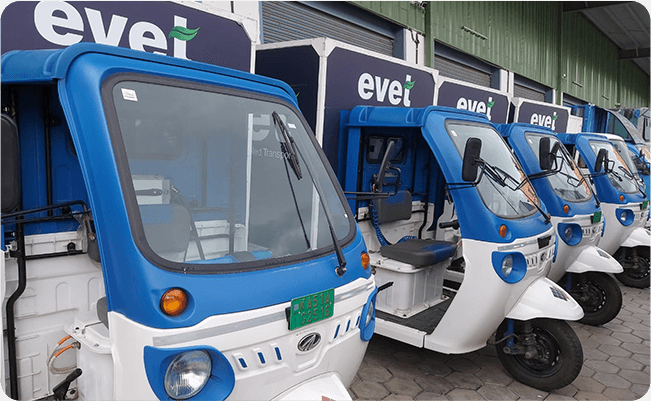 |
|
| Equivalent to 1.65 lakh trees in just 2022 |
|
We launched our first EVs back in 2016, long before they became mainstream, with a pilot of 10 electric delivery vans in Noida. As of 31st December, 2022, EVs form 30.57% of our delivery fleet. |
|
|
Petrol and diesel vehicles emit CO2, a greenhouse gas that causes global warming. Trees, by taking in CO2 for photosynthesis, mitigate this effect. However, 1 tree can digest only 22 kgs of CO2 in a year. By using electric vehicles, we have reduced CO2 emissions that would have otherwise required 1.65 lakh fully grown trees to neutralise. |
|
| 54,57,000 kWh of solar power generated in just 2022 |
|
| |
|
|
|
| | Solar panels installed on the roof of Bigbasket warehouses. |
|
|
| Equivalent to 76,000 trees in just 2022 |
Solar power is one of the most renewable sources of energy with vast potential in a tropical country like India. We started tapping it for our warehouse needs back in 2016.
Today, we have 4,512kWp panels installed a top 27 warehouses in 11 cities. Together, these generated 54,57,000kWh in 2022, reducing our greenhouse gas emissions by 1,670 tonnes. |
|
| Organic Farmer Partnerships |
|
| 1,782 organic farmers supplied us with organic produce in 2022 |
|
| |
|
| Aged 75+ and still actively farming! We invited these farmers to our Bangalore office for an interaction and felicitation on the occasion of India’s 76th Independence Day. |
Prolonged use of chemicals strips soil of its fertility, whereas organic farming is gentler and more sustainable. Our vision is to go 100% organic in the next few years and we've developed long-term relationships with farmers who share our commitment.
We support them through field geotagging, offering agri intelligence on weather, soil & growing conditions, and organising knowledge sessions on the latest farming techniques, government schemes. |
|
| DID YOU KNOW?
Bigbasket invoices are printed on recycled paper, thus avoiding 3.1 lakh kilograms of virgin paper waste. We send 100% digital invoices for bbnow orders and plan to do the same for Bigbasket soon. |
|
|
|
|
|
| Biomass Powered Refrigeration |
|
| 90% reduction in electricity consumption through biomass-fuelled cooling |
|
| |
|
|
|
| | Pratik R monitors the pilot equipment at our warehouse |
|
|
|
|
Fruits, vegetables, dairy, meat... to keep these perishables fresh, we need cold rooms for storage. Unfortunately, conventional cooling systems are not energy-efficient and run on carbon-emitting fossil fuels.
In January 2021, we installed GreenCHILL, a biomass-fueled chilling system, in Bangalore. These energy-efficient modular cooling racks use cashew shells and coconut husk as fuel and consume just 8 units/day of electricity compared to the 90 units/day that a conventional cooling system uses. So far, we’ve established 9 GreenCHILL units, saving 186 tonnes of CO2 per year. |
|
|
Read more here. |
|
| 1,00,000 litres of rainwater harvested per season per plant |
|
| |
|
|
|
| | Hulimavu Water Harvesting Facility |
|
|
|
Rainwater that goes uncollected is, at best, wasted, and at worst, a cause for flooding in congested cities. We have established rainwater harvesting plants in all our warehouses located in areas that receive good rainfall. |
|
If you read all the way here, thank you! We see sustainability as a journey and promise to keep moving forward. Trying, learning, and doing better every year. If you have any thoughts, feedback, or suggestions, please do tell us. We’re always listening. |
|
Much love,
All of us at Bigbasket |



